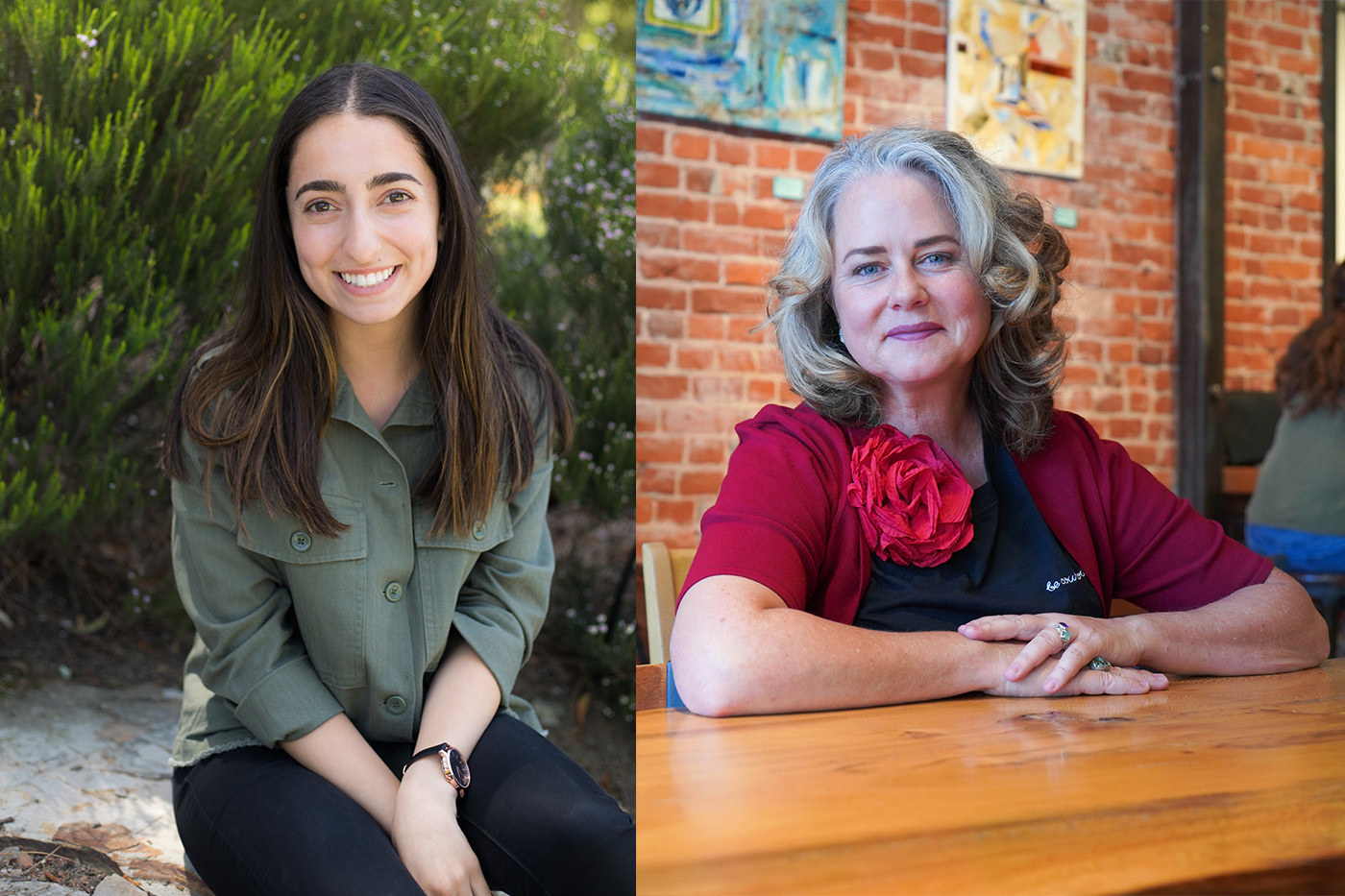San Luis Obispo Mayor Heidi Harmon and Associated Students, Inc. President and political science junior Jasmin Fashami sat down with Mustang News for a Q&A about the blackface incident one year later.
The questions and responses have been edited for brevity and clarity.
Mustang News: Is the blackface incident something that you could have seen coming?
Harmon: I mean I think it’s shocking but not necessarily surprising although i do think that what i had experienced in the past was more of a culture of whiteness in general and maybe what students and community members would have experienced more on the microaggression level which doesn’t necessarily make it less harmful but it’s a different type of experience. I think that most people on the campus and in the community are truly good people and are well intended, but even those folks, and I include myself in that category, are not always engaging on this issue in a way that’s helpful. So, I think that something I’m really working on personally.
Fashami: I knew that our demographic on campus leads way to a lot of those unconscious bias incidents happening or even some overt ones like this, like i mentioned, my first initial reaction was shock. You know, we are mostly 18 to 24 year olds and we’re pretty well educated, we’ve come to a very selective university like it almost seems like why is this something that’s happening on a campus where you would think that people have a better social understanding of what is and isn’t okay to do or feel or say especially about student groups on this campus that are very noticeably as present or as included and I think that was my first initial reaction like really? This can’t be serious.
MN: In the days that followed [the blackface incident], what was the [community] response? Did you do anything for the community?
Harmon: I think one of the things that I am learning over the course of this incident, but just really certainly this is just one of a series of racist acts in this country so it is a much bigger issue than Cal Poly or the community of San Luis Obispo and one of my big learnings, is to take a step back and listen. Ii mean of course I am in support of and in solidarity with all people and feel a special opportunity to stand with people that need extra support for whatever reason but really wanting to in the aftermath of this specific incident and just around this issue in general, as a white woman in particular, making sure that I’m listening before I’m speaking.
Fashami: My first thought was ‘Okay I really need to listen to the groups that have been specifically targeted by this action and not this one action but again the years and years of things that really make these underrepresented groups feel less included here on this campus.’
MN: What have the lasting impacts been on both the larger community and Cal Poly in your opinion?
Harmon: I’m a Cal Poly grad and so I moved to San Luis [Obispo] 30 years ago and I remember when I was coming up here, I had a Black male friend that had thought about also going to Cal Poly and had decided not to. And when I asked him why, he said because he’ll never get a date there, ‘Because there won’t be any black girls there and I won’t be able to find someone to date’ was his main reason. So this is 30 years ago. And I remember how much that struck me because that was something I realized without having the language then, that I had that privilege, I didn’t have to think about those things ever. I had thought about him again last year when this incident came up and thought, you know how right he might’ve been to have a concern about coming to Cal Poly and it’s too bad that in those 30 years since he shared that fear and that concern that it doesn’t seem like there’s been a lot of progress, even though the the data might support a different story. But I think the impression of both the campus and the community is still somewhat the same. And I think there’s an opportunity and it also puts pressure on the students of color that do choose to come to Cal Poly … It puts an added layer on students who make that choice. They are a part of a culture shift that’s really essential and valuable. That they’re actual presence here on campus is essential for [that]. And so I think that that takes courage and also adds a layer for those students.
Fashami: I think like we mentioned the data might show some improvement in terms of, you know, the statistics of what’s changing. But I think those attitudes of unconscious bias and whatever else it might be are still very present. And so I think the mentality that I’ve seen in both in government and the general student body is that we might be doing better, but there’s still a long way of going. So there’s no stopping, there’s no slowing down. It’s just, ‘Okay, this issue is still hurting,’ even though it happened a year ago.There’s a lot of issues that have happened in the past. There’s no point where it’s like, ‘Okay, we’re done now. Like this is enough of an issue or this has been resolved enough that we can stop and like we’d done our job.’ And so I think the, the attitude I’ve seen is like ‘How can we continue learning about other people and like where they come from and how to be accepting of that? How can we continue creating new initiatives to support these students or whatever else it might be?’ Whether that is within student government or advice to administration.

